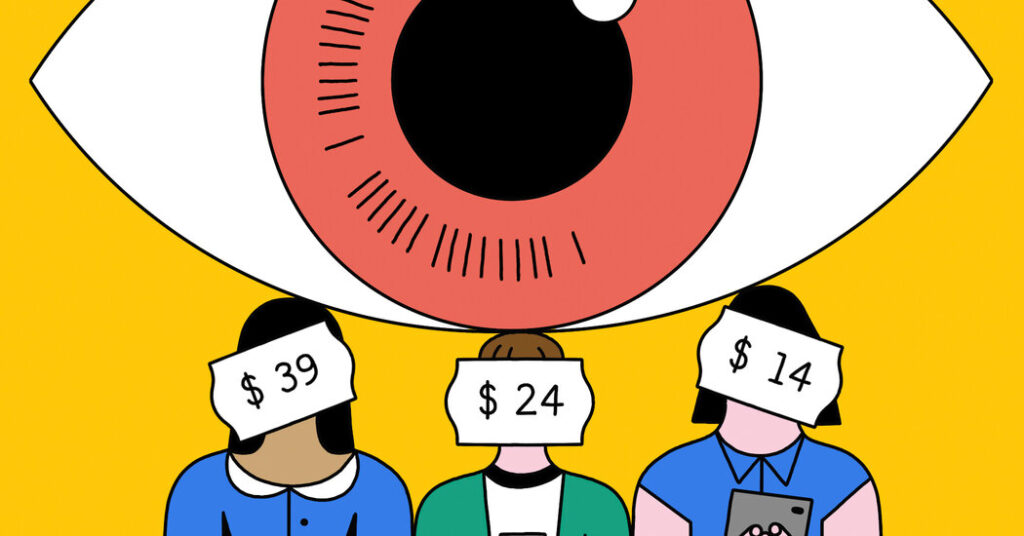If you’re not paying for the product, you are the product, as the refrain goes. In other words, many social media sites and search engines that provide free services do so in exchange for your personal data.
But with “surveillance pricing,” consumers give up data that enables companies to sometimes charge them more for products.
Surveillance pricing describes a practice in which a company sets a price for particular consumers based on what it gleans from their personal data. New parents, for example, may be shown baby thermometers at the top of their search results that are more expensive than those shown to the couple seated next to them; someone who has just gotten paid may not be offered coupons.
How it’s pronounced
/sər-vā-lən(t)s prīs-iŋ/
In the 2010s, as digital tracking became more sophisticated, more companies began using consumers’ data to set personalized prices. The harsher term “surveillance pricing” has taken off only more recently. It came up in a study by the Federal Trade Commission in July of last year, as well as in a January report by the F.T.C. finding that personal information — including mouse movements and items abandoned in shopping carts — was being used to set prices for individual consumers.
When Andrew Ferguson became the F.T.C. chair under President Trump, he soon closed down a request for public comment on the issue, taking down a channel for consumers and businesses to share their experiences. Joe Simonson, a spokesman for the F.T.C., said, the “the study is ongoing, and we will release the findings of the study to the public once it’s complete.”
Surveillance pricing sits at the intersection of two things most people revile: feeling tracked and feeling ripped off. So even though the issue is “effectively on ice at the federal level,” as Lindsay Owens, executive director of Groundwork Collaborative, a progressive economic policy group, put it, there is still political will elsewhere to tackle it.
Lawmakers are working to restrict the practice at the state level, including in California, Georgia and Illinois. A law requiring companies to disclose its use is working its way through the New York Legislature. And this month, New York Attorney General Letitia James issued a consumer alert to warn New Yorkers about the practice, and encouraged them to file complaints if they encountered violations in the wild.
Companies have always been free to set prices based on their own costs, and what they think the market will bear. But with surveillance pricing, prices are not so much about supply and demand as they are about what a particular individual might be willing to pay. Though unappealing to consumers, the practice is broadly legal.
Zephyr Teachout, a law professor and consumer advocate (who Ms. Owens suggested may have coined the term “surveillance pricing,” as cited in an American Prospect article last year), said in an interview that she could not pinpoint the exact origin of the phrase. But she acknowledged that it may have emerged from conversations she started having with friends in recent years, in a time of “feeling a lot of urgency in finding a way to communicate one of the biggest revolutions in the markets and economy.”
Beyond the name, the practice, she noted, is visceral, and disturbing, to many consumers: “Whenever people really think about prices being set using the same blob of intimate details that decides their TikTok feed, they get freaked out,” and the idea that retailers could use “your keystrokes, your eye movements, your mood, to set the price of diapers and bread hits a deep nerve.”
The post Why ‘Surveillance Pricing’ Strikes a Nerve appeared first on New York Times.




